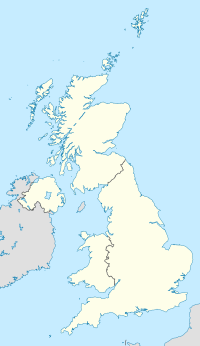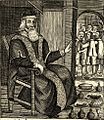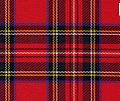Portal:United Kingdom
The United Kingdom Portal
 |
 |

| |
The United Kingdom of Great Britain and Northern Ireland, commonly known as the United Kingdom (UK) or Britain, is a country in Northwestern Europe, off the coast of the continental mainland. It comprises England, Scotland, Wales, and Northern Ireland. The UK includes the island of Great Britain, the north-eastern part of the island of Ireland, and most of the smaller islands within the British Isles, making up a total area of 94,354 square miles (244,376 km2). Northern Ireland shares a land border with the Republic of Ireland; otherwise, the United Kingdom is surrounded by the Atlantic Ocean, the North Sea, the English Channel, the Celtic Sea, and the Irish Sea. The United Kingdom had an estimated population of over 68.2 million people in 2023. The capital and largest city of both England and the United Kingdom is London, whose wider metropolitan area is the largest in Western Europe, with a population of 14.9 million. The cities of Edinburgh, Cardiff, and Belfast are the national capitals of Scotland, Wales, and Northern Ireland, respectively.
The lands of the UK have been inhabited continuously since the Neolithic. In AD 43, the Roman conquest of Britain began; the Roman departure was followed by Anglo-Saxon settlement. In 1066, the Normans conquered England. With the end of the Wars of the Roses, the English state stabilised and began to grow in power, resulting by the 16th century in the annexation of Wales, and the establishment of the British Empire. Over the course of the 17th century, the role of the British monarchy was reduced, particularly as a result of the English Civil War. In 1707, the Kingdom of England and the Kingdom of Scotland united under the Treaty of Union to create the Kingdom of Great Britain. The Acts of Union 1800 incorporated the Kingdom of Ireland to create the United Kingdom of Great Britain and Ireland in 1801. Most of Ireland seceded from the UK in 1922 as the Irish Free State, and the Royal and Parliamentary Titles Act 1927 created the present United Kingdom.
The UK became the first industrialised country and was the world's foremost power for the majority of the 19th and early 20th centuries, particularly during the Pax Britannica between 1815 and 1914. The British Empire was the leading economic power for most of the 19th century, a position supported by its agricultural prosperity, its role as a dominant trading nation, a massive industrial capacity, significant technological achievements, and the rise of 19th-century London as the world's principal financial centre. At its height in the 1920s, the British Empire encompassed almost a quarter of the world's landmass and population, and was the largest empire in history. However, its involvement in the First World War and the Second World War damaged Britain's economic power and a global wave of decolonisation led to the independence of most British colonies. (Full article...)
Featured article
The Great Fire of London was a major conflagration that swept through the central parts of London from Sunday, 2 September to Wednesday, 5 September 1666. The fire gutted the medieval City of London inside the old Roman City Wall. It threatened, but did not quite reach, the aristocratic district of Westminster and Charles II's Palace of Whitehall and left the suburban slums surrounding the City largely untouched. It consumed 13,200 houses, 87 parish churches, St Paul's Cathedral, and nearly all the buildings of the City authorities. It is estimated that it made homeless 70,000 of the City's 80,000 inhabitants. The death toll from the fire is unknown and has traditionally been thought to have been small, as only a few verified deaths are recorded. (Full article...)
Featured biography
Kate Bush is a British singer, songwriter, musician and record producer. Her eclectic musical style and idiosyncratic lyrics have made her one of the United Kingdom's most successful and original solo female performers of the past 30 years. Bush was signed up by EMI at the age of 16 after being recommended by Pink Floyd's David Gilmour. In 1978 at age 19, she debuted with the surprise hit "Wuthering Heights", topping the UK charts for four weeks and becoming the first woman to have a UK number one with a self-written song. She has since gone on to release eight albums, three of which topped the UK album charts, and have UK top ten hit singles with "Running Up that Hill", "King of the Mountain", "Babooshka", "The Man with the Child in His Eyes", and "Don't Give Up". During her tour of 1979, the only tour of her career, she became the first ever singer to use a wireless headset radio microphone on stage. With her 1980 album Never for Ever, she became the first solo female British singer to top the UK album charts. Her songwriting ability was recognised in 2002 with an Ivor Novello Award for "Outstanding Contribution to British Music". In 2005, she released Aerial, her first album in 12 years. The album was a UK success and earned her BRIT Award nominations for "Best Album" and "Best Solo Female Artist". (Full article...)
General images -
Subportals
WikiProjects
Things you can do
- Visit the British Wikipedians' notice board.
- The noticeboard is the central forum for information and discussion on editing related to the United Kingdom.
- Comment at the British deletion sorting page.
- This page lists deletion discussions on topics relating to the United Kingdom.
Featured pictures
Did you know -

- ... that Youlgreave in Derbyshire is one of only a few villages in the United Kingdom to be supplied by its own private waterworks?
- ... that a Space Forge satellite is scheduled to fly on the first-ever satellite launch from the United Kingdom?
- ... that Change UK had eleven elected members of Parliament despite never actually winning an election?
- ... that the historian and political journalist Lancelot Lawton addressed a House of Commons committee in London in 1935, beginning: "The chief problem in Europe to-day is the Ukrainian problem"?
- ... that Oxford is the first city in the United Kingdom to adopt a zero emission zone?
- ... that neighboring British Sierra Leone and Liberia disputed their border, and the British Empire seized the disputed territory in 1885?
In the news
- 8 January 2025 –
- The British government freezes the assets of neo-Nazi music network Blood & Honour, becoming the first far-right group in the UK to be sanctioned by the government. (BBC News)
- 2 January 2025 – 2025 in paleontology, Dinosaur finds in the United Kingdom
- The largest site of dinosaur footprints of the Cetiosaurus and Megalosaurus dating back to the Middle Jurassic Bathonian stage 166 million years ago is discovered at a quarry in Oxfordshire, England, United Kingdom. (BBC News)
- 27 December 2024 – Red Sea crisis
- Houthi-run state television reports that American and British airstrikes have targeted the Ma'ain District of Sanaa, Yemen. No casualties are reported. (Anadolu Agency)
- 26 December 2024 – 2021–present United Kingdom cost-of-living crisis
- The United Kingdom's Office for National Statistics announces that the UK economy showed no growth in the 3rd quarter of the current fiscal year, following downward revisions. (AP)
- 19 December 2024 – Russian invasion of Ukraine
- Military aids during the Russian invasion of Ukraine, United Kingdom and the Russian invasion of Ukraine
- 19 December 2024 – Georgia–United Kingdom relations, Georgia–United States relations, 2024 Georgian post-election protests
- The United Kingdom and the United States impose sanctions on Georgian officials, including Interior Minister Vakhtang Gomelauri, in response to alleged violent crackdowns on pro-European protests. (EFE)
Categories
Other UK-connected Wikipedias
Wikimedia
The following Wikimedia Foundation sister projects provide more on this subject:
-
Commons
Free media repository -
Wikibooks
Free textbooks and manuals -
Wikidata
Free knowledge base -
Wikinews
Free-content news -
Wikiquote
Collection of quotations -
Wikisource
Free-content library -
Wikiversity
Free learning tools -
Wikivoyage
Free travel guide -
Wiktionary
Dictionary and thesaurus
























































































































